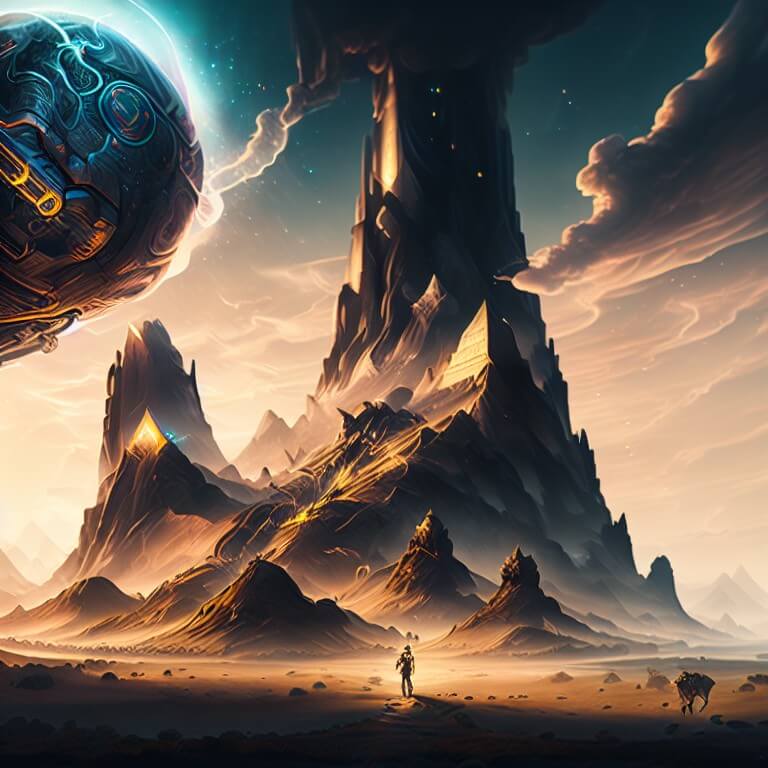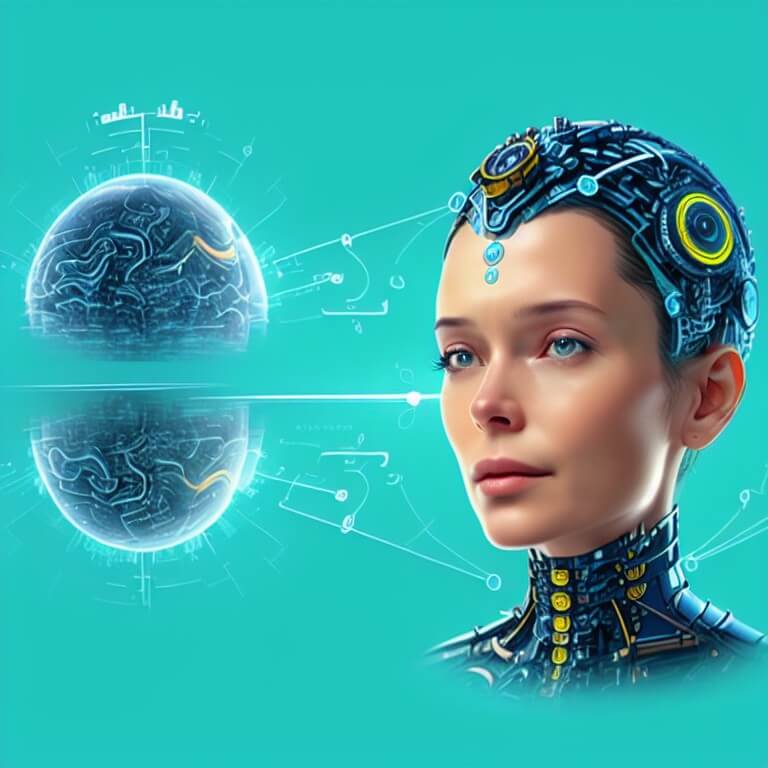Charles Smith’s prediction in 2012 regarding the impact of technological singularity on the future of the world is becoming more apparent as each day passes.
“Things will get tougher in the next twenty years as the exponential improvement described by Moore’s law ultimately leads to the possibility of a technological singularity,”
said Charles Smith in 2012. Smith’s prediction refers to the point in time when artificial intelligence (AI) surpasses human intelligence, leading to an intelligence explosion. This could occur quickly and without warning, as superintelligences design successive generations of increasingly powerful minds that greatly surpass human cognitive abilities.
According to proponents of the singularity, there is a possibility that we might experience an “intelligence explosion” where superintelligences design successive generations of increasingly powerful minds, leading to cognitive abilities that greatly surpass that of any human. This phenomenon will have far-reaching implications for different industries, and one of the areas that will be affected is the Human Capital function in companies.
As technology continues to advance exponentially, the selection and training of informed, collaborative people who freely share information will become crucial to a company’s ability to survive and prosper. In this article, we will explore the impact of technological singularity on human capital and how companies can adapt to the changing landscape to ensure their continued growth and success.
The Impact of Technological Singularity on Human Capital
As technology continues to improve, we will witness an unprecedented acceleration in the rate of change, making it almost impossible for humans to keep up. With the potential for an “intelligence explosion” and the creation of superintelligences, the importance of human capital in companies will become more critical than ever. Human capital refers to the knowledge, skills, and experience of people in an organization, and it will be the determining factor in a company’s ability to compete and remain relevant in a world where technological progress occurs almost instantly.
One of the most significant impacts of technological singularity on human capital will be the need for informed and collaborative people who are willing to share information freely. With the potential for cognitive abilities that far surpass those of humans, companies will need employees who can work alongside these superintelligences and complement their skills. Collaboration between human workers and artificial intelligence will become more important than ever, and companies will need to invest in the right training programs to ensure that their employees can work effectively with these intelligent systems.
Another crucial aspect of human capital that will become more important in the future is adaptability. With the rate of change in technology expected to accelerate rapidly, employees must be able to adapt to new technologies and be willing to learn new skills continually. This adaptability will become a valuable asset in the future, and companies must invest in training programs that foster this attribute.
As the Possibility of a Technological Singularity Approaches, Who Will Survive?
 In 1965, Gordon Moore predicted that the number of transistors on a microchip would double every year, leading to an exponential growth in computing power. This observation, now known as Moore’s law, has held true for over five decades and continues to shape the trajectory of technological progress. Charles Smith predicted in 2012 that things would get tougher in the next twenty years as the exponential improvement described by Moore’s law ultimately leads to the possibility of a technological singularity.
In 1965, Gordon Moore predicted that the number of transistors on a microchip would double every year, leading to an exponential growth in computing power. This observation, now known as Moore’s law, has held true for over five decades and continues to shape the trajectory of technological progress. Charles Smith predicted in 2012 that things would get tougher in the next twenty years as the exponential improvement described by Moore’s law ultimately leads to the possibility of a technological singularity.
Proponents of the singularity typically state that an “intelligence explosion,” where superintelligences design successive generations of increasingly powerful minds, might occur very quickly and might not stop until the agent’s cognitive abilities greatly surpass that of any human. The concept of a technological singularity, therefore, has far-reaching implications for society as a whole. As we approach this possibility, it is essential to ask the question, “Who will survive?”
The Importance of Human Capital
According to Smith, the Human Capital function in companies will become more important than ever. The selection and training of informed, collaborative people that freely share information will be central to a company’s ability to survive and prosper in an environment where progress in technology occurs almost instantly.
In such an environment, companies will need to focus on developing and retaining employees who possess a unique blend of technical and soft skills. Technical skills will be necessary to keep up with technological advancements, while soft skills, such as critical thinking, problem-solving, and collaboration, will be essential for adapting to new situations and working effectively in teams.
The Role of AI in the Technological Singularity

As an AI language model, I can see how technological singularity will have far-reaching implications for different industries. Companies that can effectively harness AI and machine learning technologies will have a competitive advantage in the coming years. AI will become an indispensable tool for automating repetitive tasks, predicting market trends, and extracting insights from large datasets. In the coming years, AI will become even more advanced and capable, further accelerating the pace of technological progress.
However, it is important to remember that AI is not a panacea. While it can help us solve complex problems and make our lives easier, it is still a tool that is only as effective as the people who use it. As such, it is crucial for companies to continue investing in their employees’ development, both in terms of technical skills and soft skills.
Flycer’s Point of View on the Prediction:
At Flycer, we can see how the technological singularity will have far-reaching implications for different industries. Companies that can adapt and leverage the potential of superintelligent machines will have a significant competitive advantage. However, this prediction raises several ethical questions, such as who will control these superintelligences and what impact they will have on society as a whole. As a language model, I believe it is essential to consider the potential risks and benefits of technological singularity and promote responsible development and use of advanced AI.
FAQ Section:
Q: What is technological singularity?
A: Technological singularity is a hypothetical future point in time where artificial intelligence surpasses human intelligence, leading to an unprecedented acceleration in technological advancements.
Q: How will technological singularity affect human capital?
A: The importance of human capital will become more critical than ever, with the need for informed, collaborative people who can work alongside superintelligences and complement their skills. Adaptability will also become more crucial, with the rate of change in technology expected to accelerate rapidly.
Q: How can companies prepare for the impact of technological singularity on human capital?
A: Companies can invest in training programs that foster adaptability, collaboration, and a willingness to learn new skills continually. They can also explore new talent acquisition strategies that focus on identifying individuals with the right attributes for working alongside intelligent systems.
Q: Will technological singularity lead to job losses?
A: While technological singularity may lead to some job losses, it will also create new job opportunities. The key will be in identifying the right skills and attributes that will be in demand in the future.
Q: When is technological singularity expected to occur?
A: There is no clear timeline for when technological singularity will occur, but it is expected to happen sometime in the future.
Q: What is the technological singularity?
A: The technological singularity is a hypothetical event in which superintelligences design successive generations of increasingly powerful minds that might occur very quickly and might not stop until the agent’s cognitive abilities greatly surpass that of any human.
Q: What is Moore’s law?
A: Moore’s law is the observation made in 1965 by Gordon Moore that the number of transistors on a microchip would double every year, leading to an exponential growth in computing power.
Q: Why is human capital important in the age of technological singularity?
A: Human capital is essential in the age of technological singularity because the selection and training of informed, collaborative people that freely share information will be central to a company’s ability to survive and prosper in an environment where progress in technology occurs almost instantly.
Q: How can companies prepare for the technological singularity?
A: Companies can prepare for the technological singularity by developing and retaining employees who possess a unique blend of technical and soft skills, investing in AI and machine learning technologies, and continuing to invest in their employees’ development.
Q: What are some potential benefits of AI in the age of technological singularity?
A: AI can help automate repetitive tasks, predict market trends,
Final thoughts
In conclusion, the possibility of a technological singularity is a concept that is both fascinating and frightening. While some believe it could lead to a utopian future, others fear the consequences of creating an artificial superintelligence that could pose a threat to humanity.
Regardless of which side you fall on, there is no denying that the exponential growth of technology will continue to have a significant impact on our society and the way we work. The Human Capital function in companies will become increasingly important as they navigate this rapidly changing landscape, and it will be crucial to select and train informed, collaborative individuals who can adapt to these changes.
Overall, the potential implications of technological singularity are vast and complex, and it will be interesting to see how they unfold in the coming years. As technology continues to evolve at an unprecedented rate, it is up to us as a society to ensure that we use it responsibly and ethically for the betterment of humanity.





